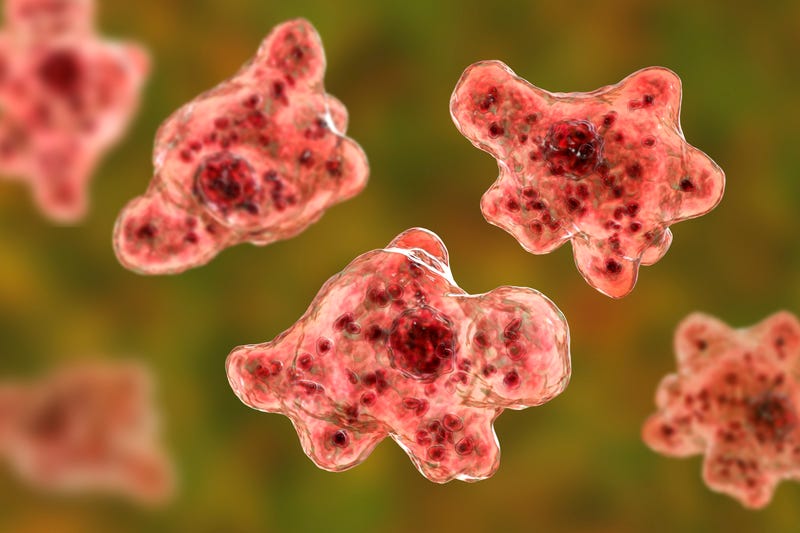
Las Vegas, NV (KXNT) - A Clark County resident has died from an infection commonly referred to as a brain-eating amoeba while swimming at Lake Mead.

The Southern Nevada Health District said the victim was a boy under the age of 18. The SNHD says the boy may have been exposed at Lake Mead on the Arizona side of the lake at the beginning of October and began to develop symptoms approximately a week later.
The infection, known in scientific circles as Naegleria fowleri is commonly found in bodies of warm freshwater, such as lakes and rivers, and geothermal water, such as hot springs. The amoeba infects people by entering the body through the nose and traveling to the brain. It cannot infect people if swallowed and is not spread from person to person. The infection is extremely rare, and almost always fatal.
Symptoms usually begin about five days after infection but can start within 1 to 12 days. Once symptoms start, the disease progresses rapidly and usually causes death within about five days.
The Centers for Disease Control and Prevention notified the Health District that Naegleria fowleri was confirmed as the cause of the patient’s illness. Infection with the amoeba causes primary amebic meningoencephalitis (PAM), a brain infection that initially includes headache, fever, nausea, or vomiting and progresses to stiff neck, seizures and coma that can lead to death. The amoeba is naturally occurring, and there is no routine test for Naegleria fowleri. Previous water testing has shown that it is regularly found in freshwater bodies and though the risk is low, recreational water users should always assume there is a risk when they enter warm fresh water.
Recommended precautions from the CDC include:
- Avoid jumping or diving into bodies of warm fresh water, especially during the summer.
- Hold your nose shut, use nose clips, or keep your head above water when in bodies of warm fresh water.
- Avoid putting your head underwater in hot springs and other untreated geothermal waters.
- Avoid digging in, or stirring up, the sediment in shallow warm fresh water.
